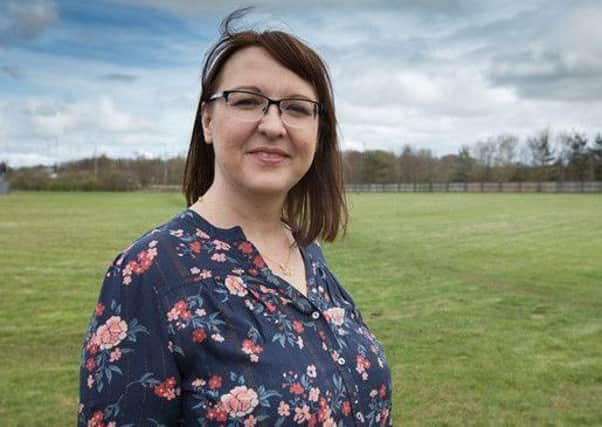The vital call that saved Heather's life


She had been diagnosed with Primary Sclerosing Cholangitis in 2015, and was initially able to manage with medication - but last year things took a bad turn for the worse.
In October she was put on the list for a iiver transplant, and during several anxious weeks - when she says she was “just existing” - she was unable to lie down because of the threat of fluid filling her lungs.
When this happened she was struggling to breathe or eat.
Advertisement
Hide AdAdvertisement
Hide AdThe liver she desperately needed came just three weeks after being listed for transplant and Heather admits that she wouldn’t be here but for the decision of her donor and their family.
The good news is that Heather’s transplant came at a time when the number of patients living in Scotland whose lives have been saved or improved by an organ transplant has reached a record high.
New figures show that in 2016/17 there were 133 deceased organ donors in Scottish hospitals - up from 99 the previous year.
This equates to a donor rate in Scotland of 24.8 per million of population - the highest rate in the UK.
Advertisement
Hide AdAdvertisement
Hide AdSome 348 people in Scotland waiting for an organ received a deceased donor transplant, which is also the highest ever number of transplants.
Heather said: “From the start of 2016, I noticed a dramatic difference in my health. I had no energy, didn’t feel great and my skin had started to become jaundiced.
“Throughout the year I struggled with infections to my bile ducts, which resulted in me being referred to the Royal Infirmary of Edinburgh to be assessed for a transplant at the beginning of October.
“When I left the hospital after a week of assessment I was shocked at how ill I looked.
Advertisement
Hide AdAdvertisement
Hide Ad“I’d been working up until that point, but as soon as I stopped it was like my body had just given up.
“I knew that a transplant would be necessary at some point as it’s the only real treatment for PSC, but I had no idea it would happen so quickly.
“I went from being someone who worked full time to someone who could barely function in a few short months. As well as the physical limitations, it was mentally very difficult.”
Understandably, her mood changed virtually overnight when she was given the good news about the transplant.
Advertisement
Hide AdAdvertisement
Hide Ad“I was relieved and excited when I got the call”, she said.
“I knew I wasn’t well, and that I didn’t have long without a transplant, but it was such a conflict of emotion.
“You’re so aware that to get that chance of life, something awful had to happen to someone else.
“I’d always been on the NHS Organ Donor Register and I think it felt easier to accept that gift, knowing I would be happy to do the same for someone else.
Advertisement
Hide AdAdvertisement
Hide Ad“You never expect that this kind of thing will happen to you or someone you know so organ donation isn’t something that’s top of your mind.
“I understand it’s not for everybody, but I would encourage people to think about it and make their wishes known.
“I know that without my transplant I wouldn’t be here now.
“I got married just after my diagnosis, and because of my donor I have a future. I’ll never stop being grateful for that.”